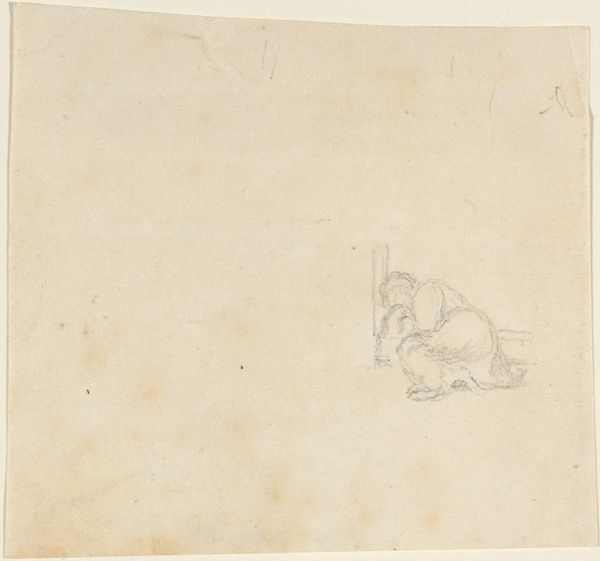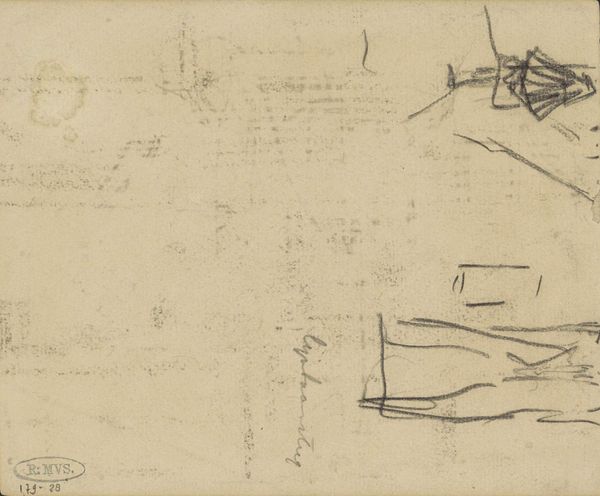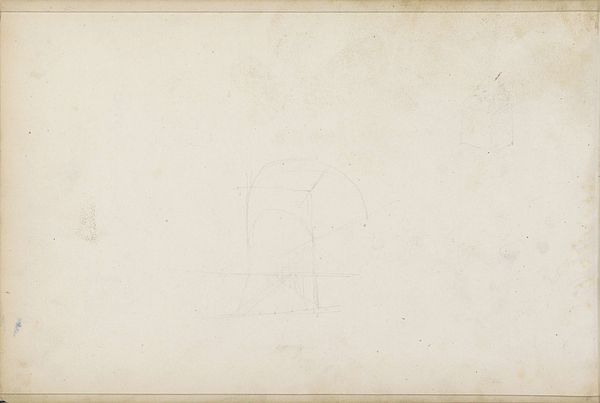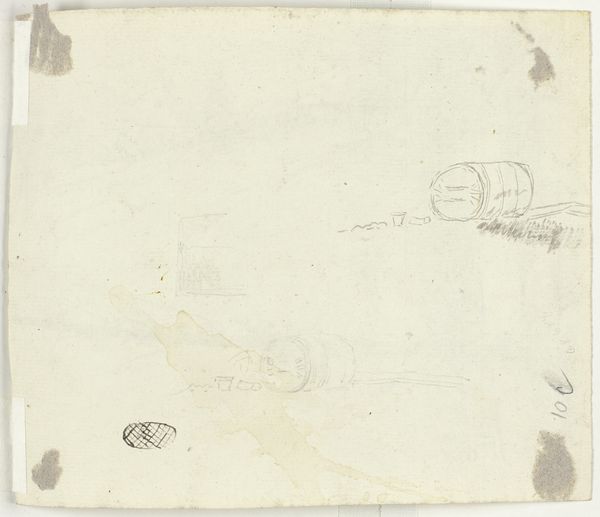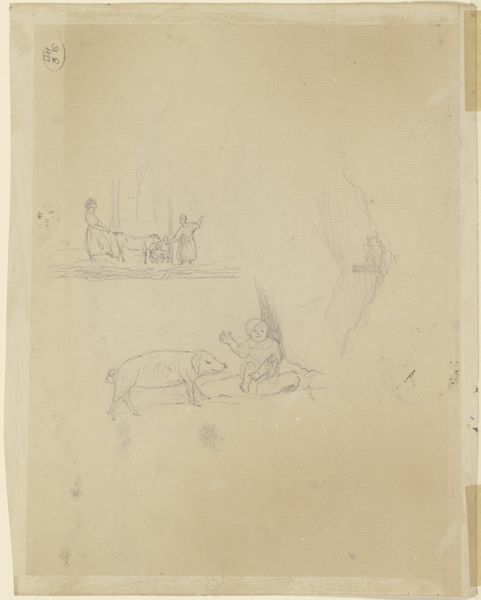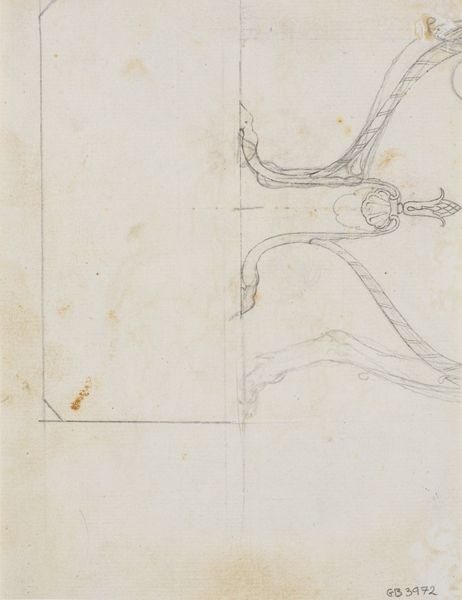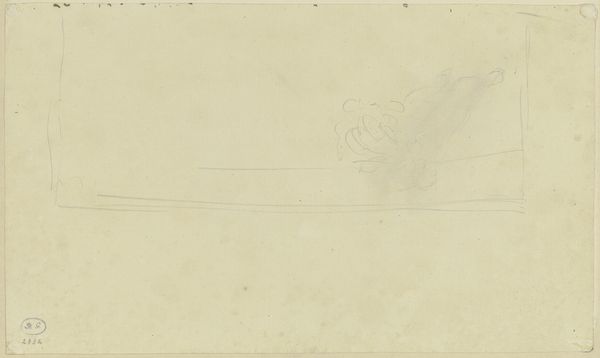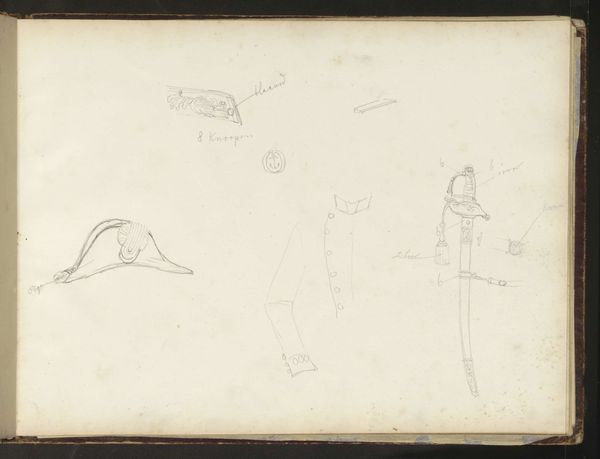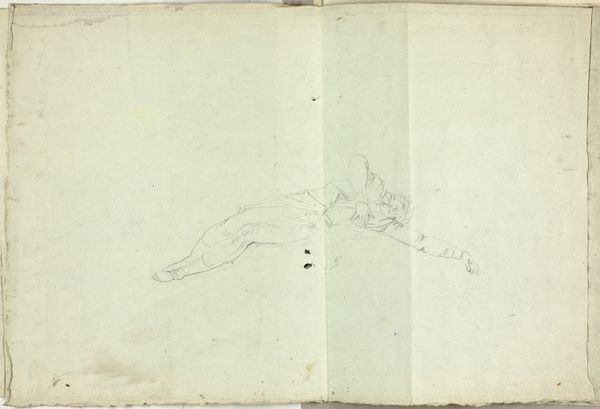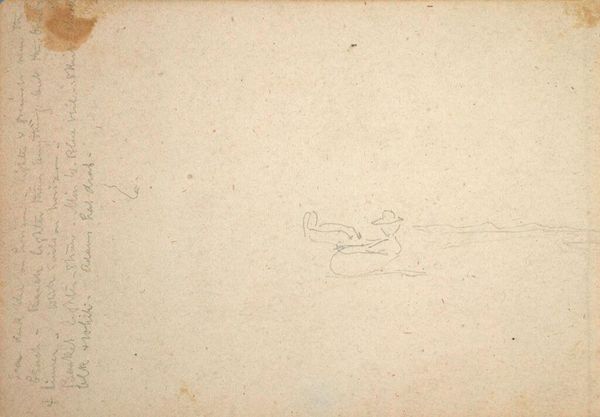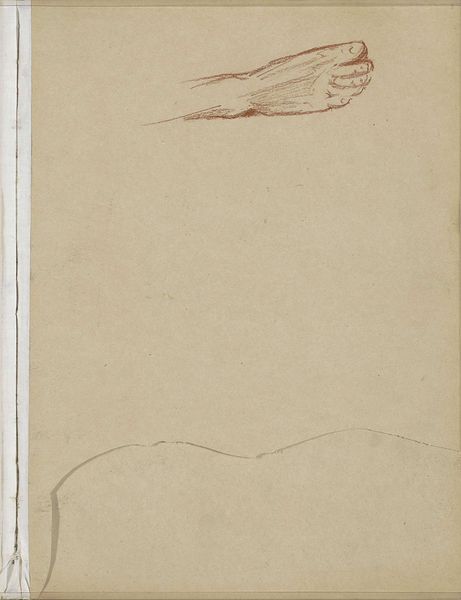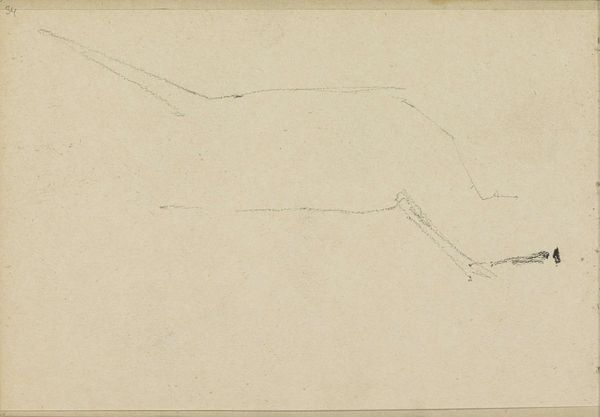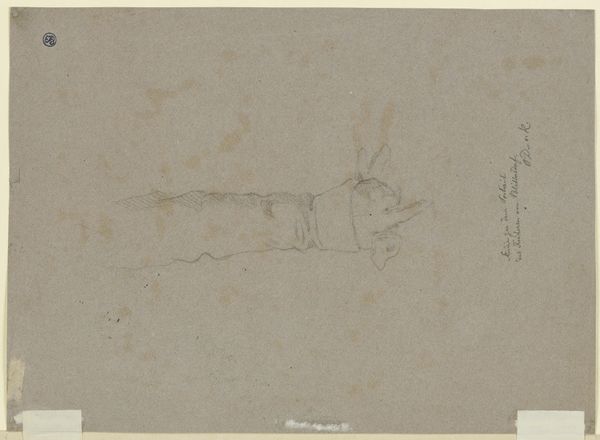
drawing, paper, pencil
#
drawing
#
water colours
#
landscape
#
paper
#
form
#
romanticism
#
pencil
#
line
#
watercolor
Dimensions: 179 mm (height) x 160 mm (width) (bladmaal)
Editor: So, here we have Dankvart Dreyer's "Et led," dating from the 1840s. It's a drawing on paper, using pencil and watercolor, and its currently at the SMK. The landscape is rendered with very sparse lines – almost ghostly. What strikes me is how unfinished it feels, almost like a fleeting impression. How do you interpret this work within its historical context? Curator: That feeling of it being “unfinished” is really insightful. Dreyer was working in a period when landscape painting was increasingly tied to ideas of national identity. Think of the “picturesque” as a tool for constructing a specific vision of Denmark. Given that, why might Dreyer present such an apparently unidealized, understated view? Editor: Perhaps to push back against the idealization, maybe show a more… real view? Less about grand romanticism and more about the actual landscape? Curator: Precisely. The "real" is a powerful concept. Consider the institutions that fostered landscape painting – the art academies, the patronage systems. Did they allow space for a radically different view? Maybe this sketch challenges what was deemed worthy of representation, subtly questioning the power structures dictating artistic taste. Editor: So it's not just a landscape; it's also a quiet rebellion against the artistic establishment? Curator: It could be read that way. Remember, Romanticism had a dark side too; there was societal anxiety with increased industrialization. How does that influence your read? Editor: I never considered that the starkness could represent societal anxieties as well. Seeing it that way helps contextualize it outside pure landscape art. Curator: Absolutely. It makes us think about the layers of meaning a simple sketch can hold, doesn’t it? Editor: It really does. Thanks, that gave me a lot to consider about artistic expression within historical contexts.
Comments
No comments
Be the first to comment and join the conversation on the ultimate creative platform.
